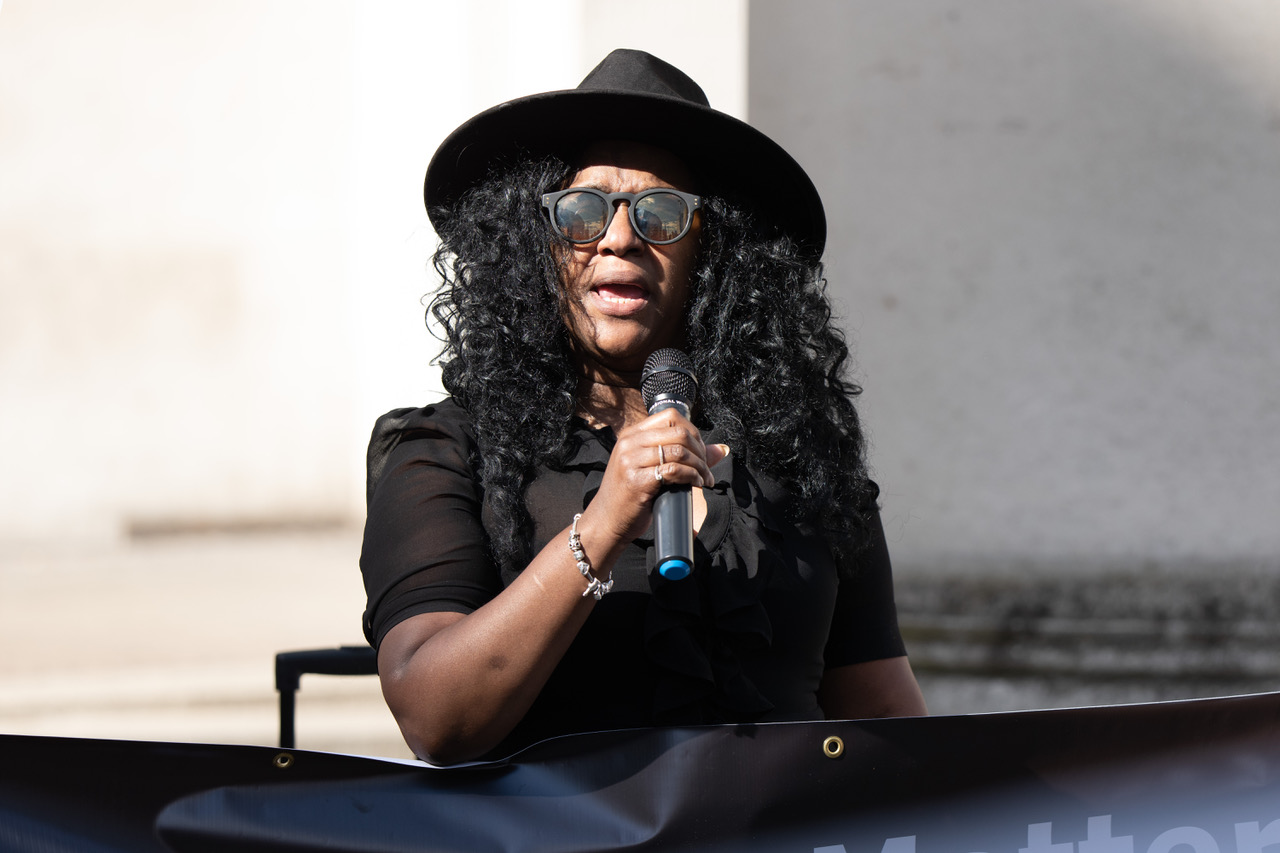On 5 September 2022 a 24-year-old black man was shot dead by an armed policeman in a residential street in Streatham, London. He was driving a car, which, via an automated registration recognition system, had been linked to an earlier firearms incident. The shot entered the car via the driver’s window, hitting the unarmed driver, Chris Kaba, in the head. Chris died later that night in hospital.
Between 2004 and 2021, 44 individuals have died as a result of fatal police shootings in the UK, according to figures from the Independent Office for Police Conduct (IOPC). Of these individuals, 17 were non white. This figure, 38.6% of police shooting fatalities, compares with a non-white population figure in the UK of 15.2% (2019 census).
The figures are even more stark when the numbers of black people shot dead by police are examined over the same time frame; black people made up 18.2% of all police gun deaths yet comprise just 3.5% of the UK population (2019 census).
On Saturday 17 September, as part of a nationwide day of protest a crowd, just shy of a hundred, gathered in St Peter’s Square to remember Chris Kaba and highlight the need for action.



Nahella Ashraf, the co-chair of the city’s Stand Up to Racism group, spoke to The Meteor.
“I think it’s important that we stand in solidarity with his family and also demand justice. It’s really important we find out what really happened. We want answers more than anything.”
The IOPC have indicated they aim to complete their investigation into the shooting within six to nine months.
Ashraf, however, voiced concerns about the impartiality of the police and the timescale given: “We have been saying, for over two years, (since the Black Lives Matter protests) that the police are racist and this is just another example.”
Since the BLM protests, Ashraf believes that in general the public have become more aware of the problem of institutional racism but within the formal structures of society very little has changed.



Ashraf contrasted the amount of reaction from the establishment and mainstream media between the recent death of Queen Elizabeth, who died peacefully aged 96, with Mr Kaba’s death, by a police gunshot, at the age of 24.
“We would like people to now show solidarity with the family of Chris Kaba and in the long run we want real change, particularly around the policing of black people within this country.”
Rena Wood, an elected activist from UNISON, one of many speakers who addressed the crowd, reminded those listening of the colonial history that had brought their families to the UK.
“I am Mancunian born and bred and proud of it. Why am I here? My parents and your parents were invited to come from the colonies to The ‘Motherland’ to make a contribution.”



Further speakers reiterated similar histories and outlined the invaluable contributions that immigration had brought to the UK and its infrastructure. They were responding to the British Government’s call for workers for the transport system, postal service and National health service. They also highlighted that many immigrants had arrived already educated, at their ‘home’ countries’ expense, from destinations that had, and still suffer from the legacy of, colonial rule.
The nature of the speeches and points made resonated with the gathered crowd as well as many of those passing who voiced their support. Apart from one individual who jeered “white lives matter” as he retreated into the distant crowd of shoppers and was generally ignored.
The UK has uniquely, within a three day period, had a change of Prime Minister and Monarch. It will be a test of integrity, for both these institutions, as to how they mend the legacy of any previous national malpractices and address those that persist within national agencies.
If Chris Kaba’s death helps in some way to initiate this process, this may offer some small solace to his family and friends.



Perhaps those who doubt the need for an emphasis on addressing cultural and racial discrimination within the establishments of the United Kingdom should heed these words from the very top:
“We are frequently reminded, of course, that violence and hatred are still all too much in evidence. We can take some comfort, however, from the fact that more people throughout the world, year by year, have real hope of their children growing up in peace and free from fear.”
“If we resolve to be considerate and to help our neighbours; to make friends with people of different races and religions; and, as our Lord said, to look to our own faults before we criticise others, we will be keeping faith with those who landed in Normandy and fought so doggedly for their belief in freedom, peace and human decency.” – Queen Elizabeth II
Sign up to The Meteor mailing list – click here
The Meteor is a media co-operative on a mission to democratise the media in Manchester. To find out more – click here
All images: Gary Roberts


Leave a Reply